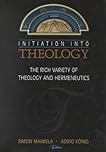About thirty years ago, on a 400km drive home to Melmoth in Zululand from Pretoria, I listened to tapes of lectures by Bishop Michael Marshall, then Bishop of Woolwich in England, who had visited Pretoria a couple of years earlier and spoken at a conference there. He described taking his nephew and niece to see
Jesus Christ, Superstar, and was surprised to discover that they did not know the plot.
By now his nephew and niece have grown up, and probably have children of their own, and they too have probably lost the plot, or probably grew up with even less chance of knowing it.
And now another Anglican bishop, Bishop Alan of Buckingham, describes the same phenomenon in his blog
Bishop Alan’s Blog: Bible and Culture 101:
Back in the 1960’s school RE was boring and worthy but predictable, and largely based on the Bible. You might decide it was a load of old tosh, but at least you ended up able to understand Shakespeare’s Hamlet or Milton’s Paradise Lost. The past becomes a completely foreign country, however, when a society obsessed with the latest of everything loses touch with its own roots, and compromises its own corporate memory.
At the age of 11 I went to high school, having grown up in an agnostic/atheist home, but I think I at least would have known the plot of
Jesus Christ, Superstar, since when I was about 5 or 6 my mother had given me a book of Bible stories (by Enid Blyton, of all people),
Before I go to sleep. I had never been to church, and probably knew more about Islam than I did about Christianity (from another book,
King of the wind). I knew something about Ramadan, I'd never heard of Lent.
So I landed up in this church school where the maths teacher was given the task of teaching "Scripture". He handled that by getting the class to read aloud in turn from the Bible, starting with Genesis 1, while he got on with marking homework, or setting exam papers and things like that. It was a special school edition of the Bible that we had been issued with, which omitted things like the genealogies, and probably had been bowdlerised in other ways too. I found the stories interesting, and began reading ahead, and surprised my parents by asking for a Bible for my birthday, and had read it twice by the time I was 15, the second time with the "Apocrypha".
Then this morning (hat-tip to the
Not-so-young Fogey) I read this --
Orwell's Picnic ~: Saving the World With Classical Grammar:
The Restoration is not only a matter of politics, or even education qua education. It is an essential re-construction of ruined thought. Imagine Western Civilization not as a set of buildings, or precious cultural artifacts like the Mass (if we may be somewhat impersonal and irreligious for a moment), or the Divine Office, or legally indissoluble natural marriage, or even any philosophical school. Imagine it is a larger thing than that; it is a framework for our thought, our creative efforts. Imagine it is the structure that makes something like Chartres or Salisbury Cathedral possible. The container for the idea of Chartres, without which no Chartres could be conceived.
And I realised that I have very ambivalent feelings about this. I was brought up to regard "Western Civilization" with something like contempt. That was because in South Africa the self-appointed guardians of "Western Civilization" were trying to implement the evil and anti-Christian policy of apartheid and being exposed to their prolonged and insidious propaganda meant that I came to think of "Western Civilization" itself as something evil and anti-Christian.
I've also been reading quite a lot about the Restoration over the last couple of years (Pepys's diaries, etc). As a child I was a natural monarchist, and so I thought the Restoration was a good thing. But its main benefits seem to have been bawdy theatre and the king's numerous mistresses. The present-day Anglican squabbles about bishops who leave their wives and live with their homosexual lovers seem quite mild by comparison.
In the same vein, I've always thought that democracy was a good thing. One of the results of democracy in South Africa is that we have freedom of the press, and so corruption in government isn't covered up as it used to be in the apartheid days. And so freedom of the press means that the newspapers are filled with political sleaze, and who is promiscuously jumping into bed with whom, sexually, politically and above all, financially. But as bad and boring as it is, I think the Restoration could have shown our politicians a thing or two.
But to get back to the Bible and culture, and especially the literature part of it, someone asked me to be a friend on
Good Reads this morning, and I went to the page where one compares one's taste in reading with someone else's and I saw that I had given Jane Austen's
Northanger Abbey four stars. It's another book that I've recently re-read after a long interval. I first read it as an undergraduate as an English I set book, and I thought it was merely OK. The trouble is that it is a satire on Gothic novels, and I hadn't read any Gothic novels, so I couldn't really appreciate the satire.
I've now read a few Gothic novels, starting with Maturin's
Melmoth the wanderer, mainly because I once lived in Melmoth (see above) and was curious about the origin of the name. Yes, I knew the town was named after
Sir Melmoth Osborne (the the car registration letters are NO, the O standing for Osborne) but I wondered why his parents had called him that. But my education was incomplete until I had read
The castle of Otranto by Horace Walpole, which is generally agreed to be the first Gothic novel, and the start of the genre that Jane Austen was satirising. The result is that I now have a new appreciation for
Northanger Abbey, far more than I ever did as an undergraduate.
And as
The castle of Ortranto and
The mysteries of Udolpho are to
Northanger Abbey so the Bible is to a great deal of Western literature, even modern literature, and even literature written by people who weren't especially Christian. James Joyce's
Ulysses is full of biblical allusions, and consider this little poem from Samuel Beckett's
Watt (which, interestingly enough, has been censored from the current in-print editions, and therefore worth reproducing here for that reason alone)
But what is this, so high, so white
And what is this, so black, so low
Burning, burning, burning bright
Quenched long ago, cold long ago?
It is a duck, a duck, a duck;
An old East India runner duck,
On a mat, a mat, a mat,
A hairy mat, a hairy mat,
Oh ancient mat! O hairy mat,
Oh high white brightly burning duck,
Cush's stones are crying yet
Forth from the wall to Habakkuk,
And from the wood the answering beam
Cries yet of the appointed time
Still tarrying and of old resolves
Of wind, and sand, and evening wolves.
Secularists, and some others, fear the influence of the Bible, and say it has no place in schools or in general culture, because it belongs to "religion", and religion must be set apart and cordoned off and confined to the "private" sphere. "Religion" and "privacy" are distincly "modern" conceptions, and I have reservations about the value of modernity, similar to those I have about "Western civilization". Actually they are linked, because Western civilization gave birth to modernity.
It was interesting, therefore, to see how this worked out in Orthodox civilization (which Samuel Huntington saw as quite distinct from Western civilization). While doing research in Russia for my doctoral thesis on
Orthodox mission methods I asked people about the revival of Orthodoxy and the fall of Bolshevism, and many people told me a similar story. The Bolsheviks were secularists, and they wanted to abolish religion altogether, or at the very least confine it and quarantine it in the "private" sphere. But they were sufficiently Russian to allow people to read the great works of Russian literature, many of which, however, were imbued with an Orthodox "fronima", a mindset, a set of presuppositions. So "Holy Russia" survived in literature, and as an ideal, and people read this literature and became curious about the thinking and the ethos behind it, and wanted to learn more. And in Brezhnev's time, when Bolshevism was dull and boring and conservative and stick in the mud, the thirst for something more interesting and more exciting grew and so Bolshevism was overthrown. One of my interlocutors said that he thought that this showed that the best method of re-evangelising Russia was to promote "Orthodox Christian culture". I'm not so sure about that. In the late-Bolshevik period it was the only accessible alternative to Bolshevism, but since the fall of the Communist Party from power Russia had been flooded with all kinds of literature and culture from all over the world, and so the choice is not so simple any more.
Now this, of course, is the secularist's nightmare, and shows the danger of letting religion get a toehold in the culture after all their strenuous efforts to sideline it. And I find myself out of sympathy with them, but equally out of sympathy with those who want to identify the Christian faith with the culture so completely, and use arguments like those about Chartres Cathedral that I quoted above. I quite like Harvey Cox's distinction between secularisation and secularism. I tend to favour secularisation, because, like it or not, there
is a distinction between the church and the world, and I'm aware of those who see religion as so entangled with secular culture that they see other religions as an insult to their culture (some have called this "Christendom"). Secularism, however, is an ideology, and a rather narrow-minded and bigoted one at that, which sees
any religion as an insult to its culture.




